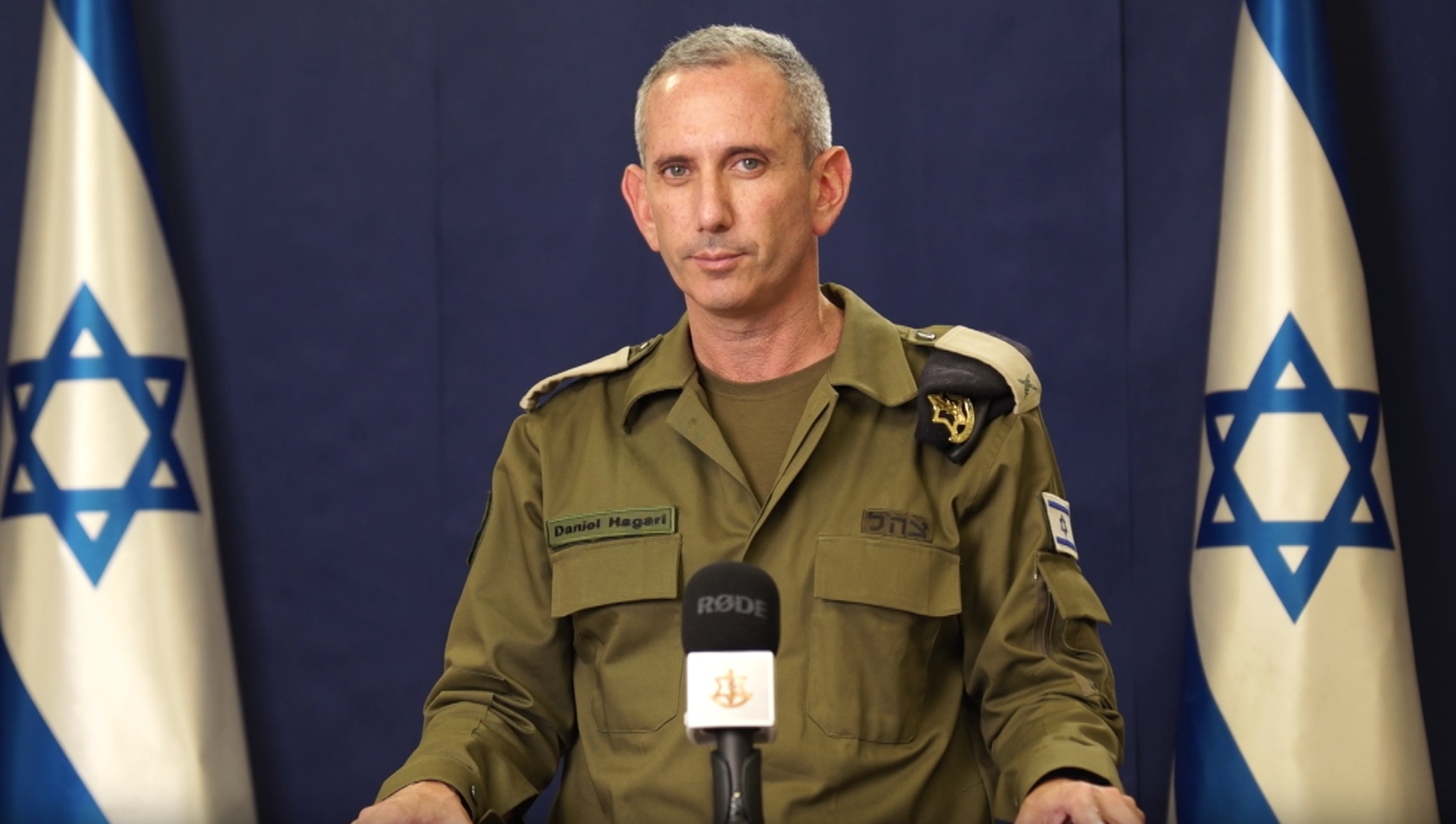
The military said Yotam Haim, Alon Shamriz and Samer El-Talalqa — all in their 20s — were shot during operations in Gaza City.
They were among about 250 people taken hostage during Hamas’s October 7 attacks in Israel, which killed around 1,140 people, mostly civilians, according to Israeli figures.
Vowing to destroy Hamas and bring back the hostages, Israel launched a massive military offensive against the Palestinian Islamist movement that has left much of the Gaza Strip in ruins. The Hamas-run territory’s health ministry says the war has killed at least 18,800 people, mostly women and children.
Army spokesman Daniel Hagari said that during fighting in the Shejaiya district of Gaza City, troops “mistakenly identified three Israeli hostages as a threat and as a result, fired toward them and the hostages were killed”.
The military said later it had started “reviewing the incident” and that “immediate lessons from the event have been learned” and passed on to all troops on the ground.
Prime Minister Benjamin Netanyahu described their deaths as an “unbearable tragedy”.
Hundreds of people later gathered outside the Defence Ministry in Tel Aviv to call on Netanyahu’s government to secure the release of 129 hostages still held in the Hamas-ruled Gaza Strip.
“I am dying of fear,” said Merav Svirsky, sister of Hamas-held hostage Itay Svirsky. “We demand a deal now.”
In November, a one-week truce saw more than 100 hostages freed in exchange for Palestinians held in Israeli jails, but fighting has since resumed.
The hostages’ deaths have heightened already fierce scrutiny of how Israel is conducting its ground and air assault in Gaza.
The White House, which provides billions of dollars in military aid to Israel, has voiced growing concern over mounting civilian deaths.
“I want them to be focused on how to save civilian lives — not stop going after Hamas, but be more careful,” said US President Joe Biden this week.
News platform Axios said the director of Israeli intelligence agency Mossad, David Barnea, was due to meet this weekend in an unspecified location in Europe with Qatari Prime Minister Sheikh Mohammed bin Abdulrahman Al Thani.
Axios said the officials would discuss resuming negotiations for a deal to secure the release of the remaining hostages.
In Gaza, fierce fighting continued.
The Israeli army said Saturday it had raided two schools in Gaza City saying they were Hamas hiding place.
TV network Al Jazeera said Friday that one of its journalists, Samer Abudaqa, had been killed and another, Wael Dahdouh, wounded by “shrapnel from an Israeli missile attack” in Khan Yunis.
“He died hungry, they died with nothing to eat, with hunger. Oh my darling,” said his grieving mother, Umm Maher.
More than 60 journalists and media staff have died since the war began, according to the Committee to Protect Journalists.
“We were reporting, we were filming, we had finished and we were with the civil defence, but when we were on the way back, they hit us with a missile,” said Dahdouh, who lost his wife, two children and grandchild earlier in the war.
In the face of growing international pressure, Israel announced a “temporary measure” allowing aid to be delivered directly to Gaza through the Kerem Shalom border crossing.
Since the war began, a trickle of aid has squeezed into Gaza through the Rafah crossing with Egypt.
Aid agencies have said the volume is nothing like enough to help the estimated 1.9 million Gazans displaced by the war.
A World Health Organization representative said it was “very good news”.
US National Security Advisor Jake Sullivan met Palestinian President Mahmud Abbas in Ramallah on Friday.
Abbas said Gaza must remain an “integral part” of a future Palestinian state.
But Abbas’s Palestinian Authority (PA), which has partial administrative control in the West Bank only, is deeply unpopular with Palestinians and has been further weakened by the war.
Washington still hopes the PA can resume control of Gaza as part of a renewed push for a two-state solution to the Israeli-Palestinian conflict — a solution that Netanyahu has resolutely opposed.
The conflict has appeared to push any peace deal further out of view.
Multiple Western governments issued a joint statement demanding that Israel “take concrete steps to halt unprecedented violence by Israeli settlers” in the West Bank.
More than 280 Palestinians have been killed by Israeli forces or settlers in the West Bank since the war in Gaza erupted.
Israel’s police force said it had suspended several officers after they severely assaulted a journalist for Turkish news agency Anadolu as he was trying to take photos of Palestinians praying in annexed east Jerusalem.
The war continues to be felt across the Middle East, with Yemen witnessing a vast protest in solidarity with Gaza on Friday.
Global shipping lines Maersk and Hapag-Lloyd announced they were halting voyages through the Red Sea following attacks on vessels by Yemeni rebels allied with Hamas.
Yemen’s Huthi rebels struck a cargo ship in the Red Sea on Friday, causing a fire on deck, the latest in a spate of near-daily attacks in the commercially vital waterway.
The rebels later said they fired missiles at two other ships in the Red Sea.
AFP









